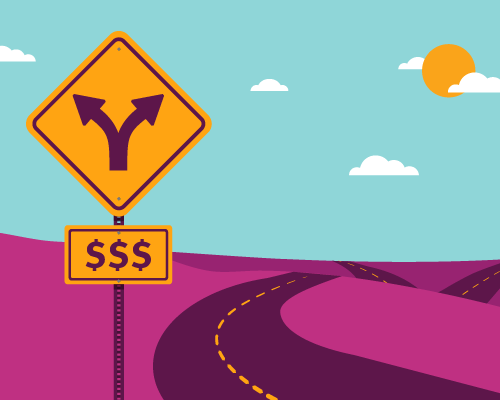Updated September 2025
It might save you more than you think.
Refinancing a car or RV loan doesn’t always get the attention it deserves, but it can be a simple way to save money.
Before we get too far, we want to let you know that RV stands for more than a camper. It’s recreational vehicles like boats, snowmobiles, and yes, campers.
Anyway, back to business.
By switching to a lower rate, you could lower your monthly payment, shorten your loan term, or both. Some lenders even offer cash-back incentives to sweeten the deal.
When you refinance, your new lender pays off your existing loan and replaces it with a new one, ideally with better terms.
Your vehicle title gets transferred over and you start making payments with your new lender. Most of the time, there’s no appraisal, little to no fees, and the application can be done online.
Why refinance?
- Lower your monthly payment. A smaller monthly bill can free up room in your budget for other needs or goals.
- Take advantage of lower rates. If your current rate is higher than what’s being offered now, refinancing could save you a lot over the life of your loan.
- You've improved your credit. A better credit score could mean a better interest rate than when you first borrowed.
- You want to pay your loan off faster. If your financial situation has improved, refinancing it to a shorter loan term could help you become debt-free sooner and pay less interest overall.
When refinancing might not make sense.
- You're upsidedown on your loan. If your vehicle is worth less than what you owe, most lenders won't approve a refinance.
- Your vehicle is too old. Some lenders have age or mileage limits, and older vehicles often come with higher refinance rates.
- There's a prepayment penalty. This is rare, but possible. Make sure you check your current loan to make sure there’s no cost to pay it off early.
- A longer term would cost more. Refinancing to extend your loan might lower your payment, but you could end up paying more in interest over time.
Refinancing can be a smart move if the numbers work in your favor. Do the math, compare offers, and make sure the savings are real before you make the switch.
Disclosures
This is for educational purposes.



